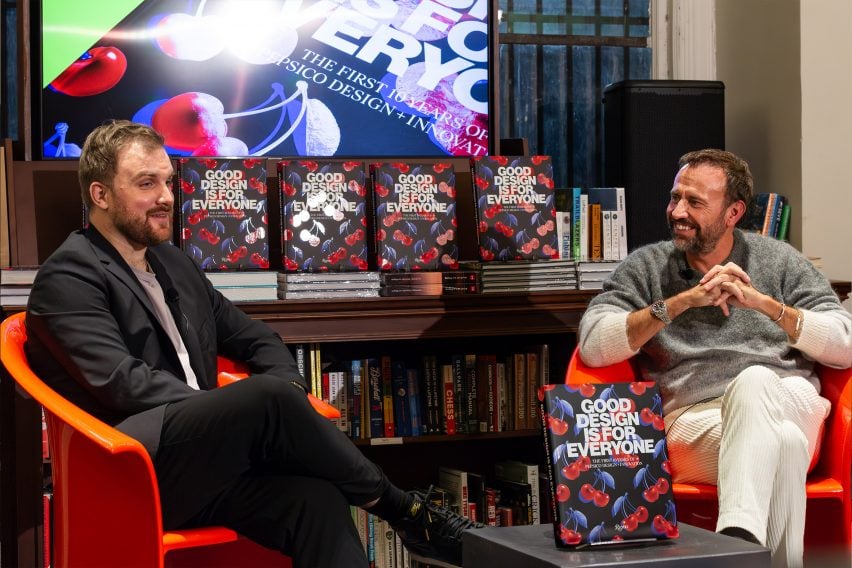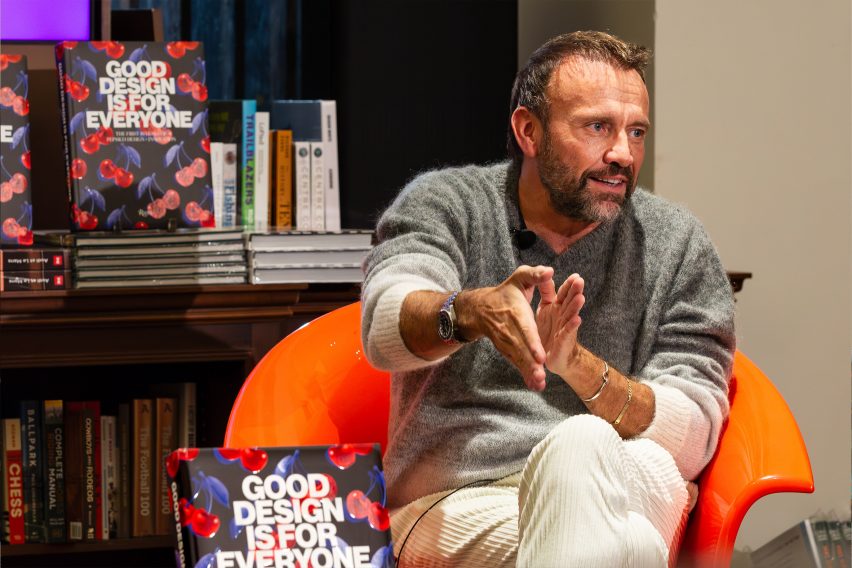Brands need to apply human-centric design principles to every aspect of their organisation, says PepsiCo's chief design officer Mauro Porcini in this exclusive talk hosted and filmed by Dezeen for the brand.
Moderated by Dezeen's US editor Ben Dreith, the talk was held to commemorate beverage company PepsiCo's new book Good Design Is for Everyone: The First 10 Years of PepsiCo Design + Innovation, which details the story of its brand design over the past decade.
The book was published by Rizzoli and the talk was held at its bookstore in New York City.

Porcini talked about his experience leading PepsiCo Design, the brand's in-house design arm, since 2012 and how he grew its presence globally.
He defined human-centric design as an approach that takes into account connections between people – both between a company and its users and within a company itself.
When he joined the company, this cultural shift was just beginning to take place, Porcini said.
"I joined the company at a moment of major change, not just of PepsiCo but of society overall," he explained.
"The company was becoming more and more global and there was a drive to design with purpose, creating a real value for people."

Porcini said that at the outset of his time at PepsiCo, the industry was largely focused on packaging rather than building meaningful experiences for people.
He noted that change and disruption do not come easily and that human beings are resistant to change, preferring the safety of the status quo.
"Success and failure are defined by details, by nuances of execution, by reading between the lines," he explained.
Today, there are over 350 people within PepsiCo Design + Innovation, which has 17 design centres across the globe.
The book details the team's industrial, experiential and graphic design strategies for its brands during that 10-year period.
"This is why we did this book. We want to celebrate what we did, but there is so much more," Porcini said. "We are just scratching the surface."
Porcini went on to explain how building a strategy based on experimentation is a vital part of design.
"This is design thinking in action,” he said. “At PepsiCo, we made multiple mistakes, we learned from them and then we fixed them in the next iteration."
Porcini is an advocate for empowering strong local design teams to serve local regions within global brands like PepsiCo.
"We have to be relevant in an authentic way,” he explained. "Through our messages, through our position, our giving back to society, what kind of point of view we have on what's going on in the world."
PepsiCo's portfolio includes a wide range of food and beverage brands, including Lay's, Gatorade and Doritos.
The photography is by Phoebe Streblow.
Partnership content
This video was produced by Dezeen as part of a partnership with PepsiCo. Find out more about Dezeen partnership content here.
